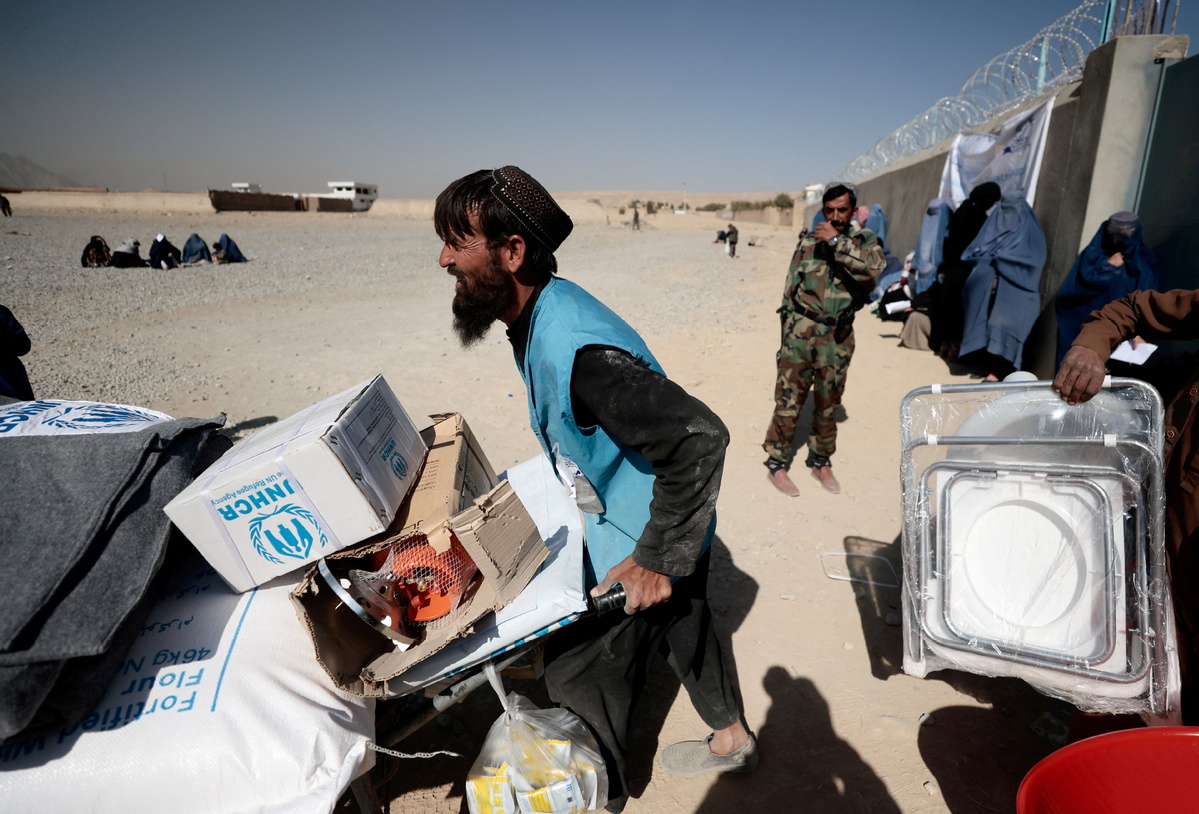Afghans abroad help compatriots with necessities
China Daily | Updated: 2022-01-19 09:58

KABUL-Every day, about 300 impoverished families receive naan from a charity via bakeries in the west of Afghanistan's capital Kabul over the past three months.
"We give one naan to each member of a family every day. If a family has 10 members, they can receive 10 naan each day," said Mohammad Sharif Tabish, who works for the Hazara Foundation. "It is not much, but we have to do what we can."
The Hazara Foundation is largely financed by well-off Afghans based overseas, many of them refugees themselves, and does not receive aid from any international agency.
"It is our moral responsibility to help our fellow Afghans in this time of need and promote a culture of cooperation," Tabish said.
Afghanistan currently faces its worst times since the collapse of the US-backed administration in mid-August, with more than $9.5 billion of the country's assets still frozen. Sanctions have led to banking restrictions and rising poverty across the country as the new administration finds it increasingly difficult to pay salaries. A humanitarian catastrophe beckons this winter with more than 20 million Afghans facing hunger.
"My only income nowadays is nothing but the four naan we receive from the Hazara Foundation every day," said Hanifa, a widow with a family of four. She benefits from this new culture of cooperation that may help her survive the freezing winter.
Many countries, including China, Pakistan and the United Arab Emirates, have provided humanitarian assistance to Afghanistan, but United Nations agencies and the new Afghan administration are calling for more.
'No fuel, firewood'
"We have no fuel and no firewood to keep our home warm. We have no food and no income to organize our lives," said Sayed Hashim in front of a Kabul bakery. "Naan alone is not enough to feed a family. We need help to survive the winter."
UN humanitarians and partners have provided food assistance to more than 9 million Afghans since the Taliban takeover, the UN Office for the Coordination of Humanitarian Affairs said on Monday.
Humanitarians have provided community-based education activities for more than 145,600 children since September. They have also provided more than 1.6 million people with primary and secondary healthcare and treated more than 275,000 children under the age of 5 for acute malnutrition.
Xinhua
























